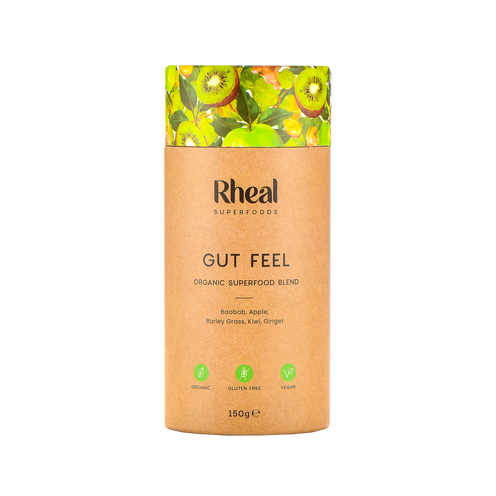Most of us have heard of serotonin and dopamine, but what are they exactly? Let's explore the wonderful world of brain boosting chemicals.
The feel good, happiness chemicals 🤩
Serotonin and dopamine sound pretty science-y right? Well, that's because they are if we're upfront with you!
Don't worry though, we are here to tell you the basics about each, including why they're so important.
These two amazing chemicals help our bodies to recognise pleasure and happiness, so they have a big impact on mood and mental health.
Getting a better understanding of how dopamine and serotonin work, as well as what we can do to naturally boost our production of them, can help us to support our mental health.
What are Serotonin and Dopamine? 🤔
Serotonin and dopamine are neurotransmitters, or chemical messengers to you and me, which help to regulate many bodily functions - from metabolism and sleep to much more.
They also send messages between our nerve cells and brain, to help control how we think and feel. This means that they have a big influence on our mood and emotions too - which is what most of us know them for.
Here are some of the basic facts you should know about serotonin and dopamine.
Serotonin 🧬
Best known for: Boosting your mood and happiness
Also helps with: Sleep cycles, wound healing, digestion and libido
Made: Mostly in the gut (95%!)
Symptoms of low serotonin include: Low mood, memory problems, sweet cravings and problems sleeping
Dopamine 🧬
Best known for: Feelings of pleasure, motivation and satisfaction
Also helps with: Attention, sleep, learning and coordination
Made: Mostly in the brain!
Symptoms of low dopamine include: Mood changes, problems sleeping, demotivation and inability to concentrate
The Importance of Serotonin & Dopamine 😌
The ability for dopamine and serotonin to influence our feelings and happiness can help tor regulate mood and emotions daily, as well as over time.
However, when our body has extreme lows or highs of each chemical - it can create problems, in the short-term and long-term.
For example, extreme highs of dopamine and serotonin can over-stimulate our pleasure centres and increase the risk of addiction. In fact, studies have shown that levels of each are spiked in those with addictions to shopping, gambling and drugs.
On the flip side, low levels of these chemicals can cause poor mood and emotional imbalances. Over time, these can contribute to and even be the root cause of mental health conditions including chronic stress, anxiety and depression.
5 Ways to Boost your Serotonin & Dopamine Levels 💚
The good news is that there are many ways to increase the amount of serotonin and dopamine in your body.
First things first, if you recognise any extreme or long-lasting changes in your mood (good or bad) it is always recommended to consult your GP, to rule out any underlying causes such as mental health conditions.
1. Medication 💊
As lots of mental illnesses stem from or are worsened by low levels of serotonin and dopamine, there are a wide variety of different drugs available to help rebalance your natural levels of these.
One example is medication such as SSRIs (Selective Serotonin Reuptake Inhibitors), which are widely used as a type of antidepressant and work by increasing the levels of serotonin available in the brain.
For more information about medications that can help with mood, it is always best to chat to your GP.
Other natural ways to increase your serotonin are being explored by psychiatrists and can be utilised in your everyday to take a proactive approach to your mental wellbeing! Let's take a look.
2. Meditation 🧘
Meditation is a great way to naturally support your body's own production of serotonin and dopamine.
You don't have to book a yoga retreat or invest in any fancy equipment either, there are plenty of free video tutorials and apps you can use in the comfort of your own home.
A study by Sharma (2008) found that spiritual practices, such as meditating, have antidepressant effects by stimulating the release of serotonin and dopamine.
The change in consciousness that happens when we meditate is also thought to release a surge of dopamine (Watson, 2021).
Even just 10 minutes of meditation daily can make a real difference to your mental wellbeing!
3. Exposure to bright light & daylight 💡
Natural daylight has a huge impact on our sleep cycles and mood, which stems from our ancestral history of living in the outdoors and nature.
Comparatively, a lack of natural light exposure in the modern world (as we're cooped up in offices and our homes much of the time) can negatively affect our mood and happiness.
Studies have shown that exposure to bright light has can be effective in treating both seasonal and non-seasonal depression (Golden et al, 2005) and at treating pregnant women with depression (Epperson et al, 2004), thought to be because it triggers the release of serotonin.
Multiple other studies have also found serotonin levels to be significantly higher in summer months, compared with winter (Young, 2007). This is one of the underlying causes of SAD (Seasonal Affective Disorder).
Getting as much daylight as possible, spending time in nature and investing in a UV light or sunrise alarm cloak are great hacks to get more light exposure in the modern world.
4. Exercise 💪
Regular exercise helps to reduce levels of cortisol (the stress hormone) which if present, can deplete the levels of serotonin and dopamine in the body.
Completing just 30 minutes of aerobic exercise such as running, walking, swimming or HIIT, increases serotonin production, improves cognitive function (Basso & Suzuki, 2017) and engages the brain’s reward system, releasing dopamine into the body (Gorrell et al, 2022).
There are lots of things which also give us a serotonin or dopamine rush, but aren't good for us - e.g. compulsive shopping, gambling, alcohol and recreational drugs.
However, exercise is a healthy habit which has amazing benefits for our body and mind - a welcome addition to your daily healthy routine.
4. Diet & nutrition 🌱
Fuelling your body with nutrient-rich foods is vital for your mental health.
Eating foods rich in amino acids (the building blocks of protein), helps in the production of brain chemicals, such as serotonin and dopamine.
Knowing what foods to eat can be tricky, and often the amount you need to eat to reap the benefits is significant, but that's where superfoods come in.
Being some of the most nutrient-dense foods on the planet, superfoods are an easy and convenient way to boost your vitamin and mineral intake.
As low blood sugar levels can also interfere with the production of serotonin and dopamine, be sure to avoid going hungry and always have a healthy snack to hand - such as our Rheal Energy Bars.
We hope that you have gained a better understanding of serotonin and dopamine - as well as why they matter to you. There are lots of simple healthy habits you can practice everyday to help support your natural production of each, and take a proactive approach to mental wellbeing.

References
Plumptre, E., (2023). The Most Common Low Dopamine Symptoms. Online: https://www.verywellmind.com/common-symptoms-of-low-dopamine-5120239
Dellwo, A., (2023). Serotonin Deficiency: What to Know. Online: https://www.verywellhealth.com/what-does-low-serotonin-feel-like-3972959
Golden RN, Gaynes BN, Ekstrom RD, Hamer RM, Jacobsen FM, Suppes T, Wisner KL, Nemeroff CB., (2005)., The efficacy of light therapy in the treatment of mood disorders: a review and meta-analysis of the evidence. Am J Psychiatry. Apr;162(4):656-62. doi: 10.1176/appi.ajp.162.4.656. PMID: 15800134.
Epperson CN, Terman M, Terman JS, Hanusa BH, Oren DA, Peindl KS, Wisner KL., (2004). Randomized clinical trial of bright light therapy for antepartum depression: preliminary findings. J Clin Psychiatry. Mar;65(3):421-5. doi: 10.4088/jcp.v65n0319. PMID: 15096083.
Basso, Julia C. and Suzuki, Wendy A., (2017). ‘The Effects of Acute Exercise on Mood, Cognition, Neurophysiology, and Neurochemical Pathways: A Review’. 1 Jan : 127 – 152.
Gorrell, S., Shott, M. E., and Frank, G. K. W. (2022). Associations between aerobic exercise and dopamine-related reward-processing: Informing a model of human exercise engagement. Biol. Psychol. 171:108350. doi: 10.1016/j.biopsycho.2022.108350
Krishnakumar D, Hamblin MR, Lakshmanan S., (2015). Meditation and Yoga can Modulate Brain Mechanisms that affect Behavior and Anxiety-A Modern Scientific Perspective. Anc Sci. Apr;2(1):13-19. doi: 10.14259/as.v2i1.171. PMID: 26929928; PMCID: PMC4769029.
Sharma, A., (2008). Meditation: The Future Medication. RCPSYCH. Available online: https://www.rcpsych.ac.uk/docs/default-source/members/sigs/spirituality-spsig/avdesh-sharma-meditation-as-medication2.pdf?sfvrsn=13e6a51_2
Watson, S., (2021). Dopamine: The pathway to pleasure. Available online: https://www.health.harvard.edu/mind-and-mood/dopamine-the-pathway-to-pleasure



